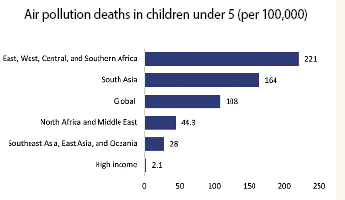By Fatima S Attarwala
Copyright dawn

In 2021, while the pandemic was still ravaging the world and lockdowns were in place, so vehicle emissions were relatively lower, 8.1 million still died, in part owing to the effects of air pollution. In Pakistan, the number was 256,000, of which 68,100 deaths were of children under five.
It is called a silent killer for a reason. Studies have shown that hospitalisations for respiratory illnesses or cardiovascular diseases increase during periods of high exposure in Pakistan. Even a superficial Google search of the linkage between deaths and air pollution reveals a plethora of alarming statistics.
And yet, outdoor air pollution is massively underfunded compared to other development areas. It received only one per cent of all international development funding from 2018 to 2022, according to the Clean Air Fund.
When its death toll is so high, why is air pollution so persistently ignored in climate finance? One argument could be that air is a public good — and because it belongs to everyone and no one at the same time, there is little incentive for private investors to step in, while governments, already stretched thin, tend to prioritise more visible, politically rewarding projects.
Published in Dawn, The Business and Finance Weekly, September 29, 2025



